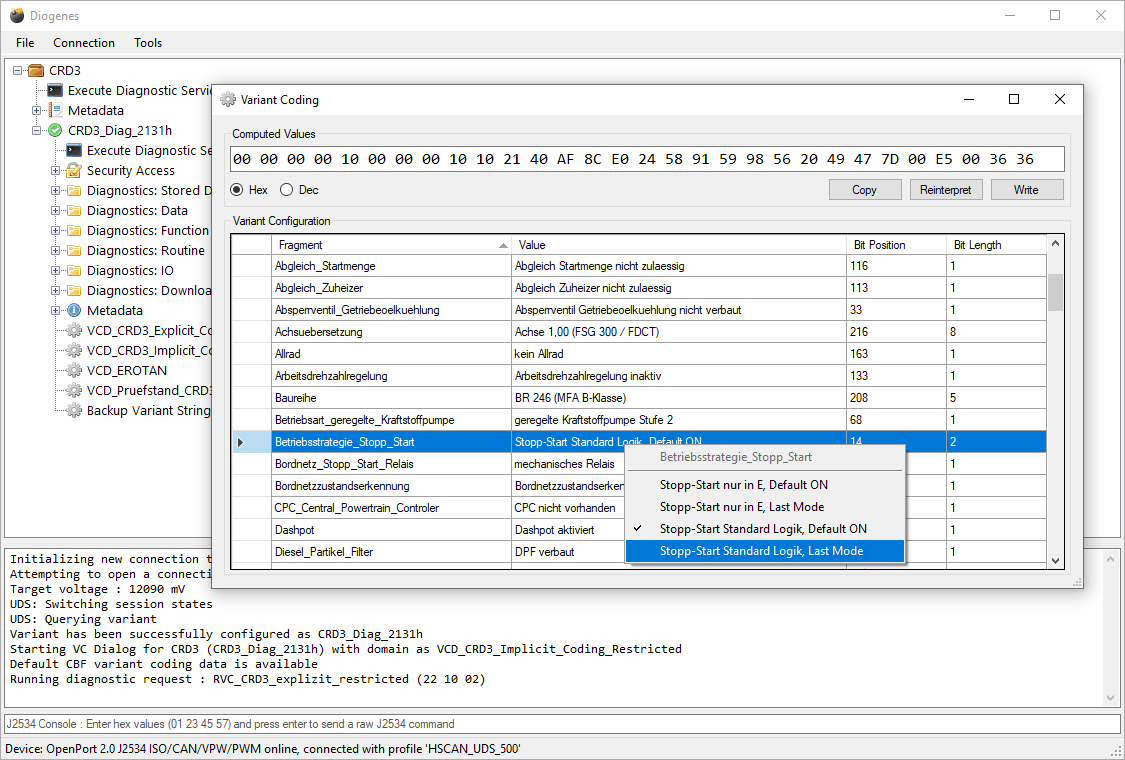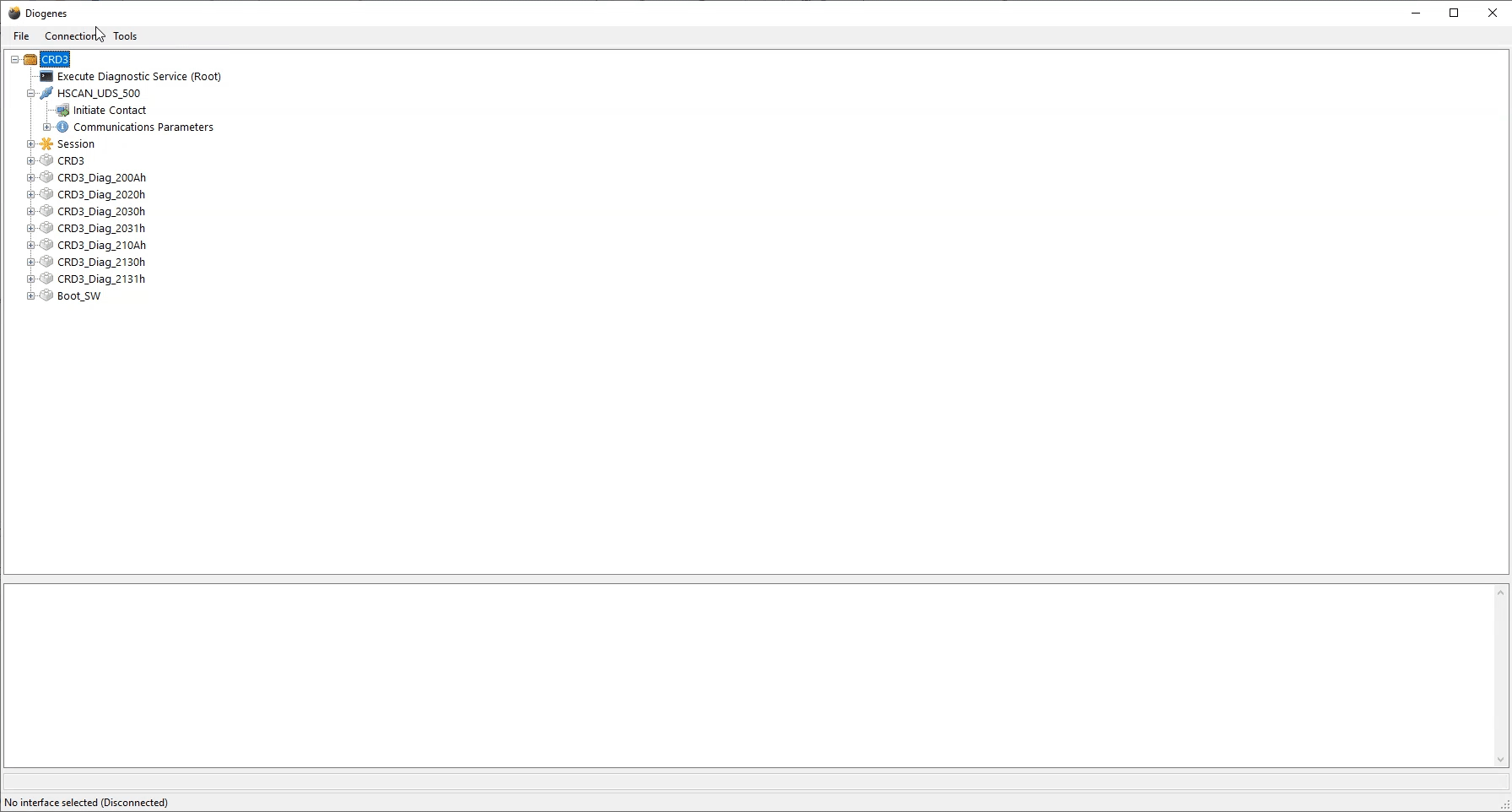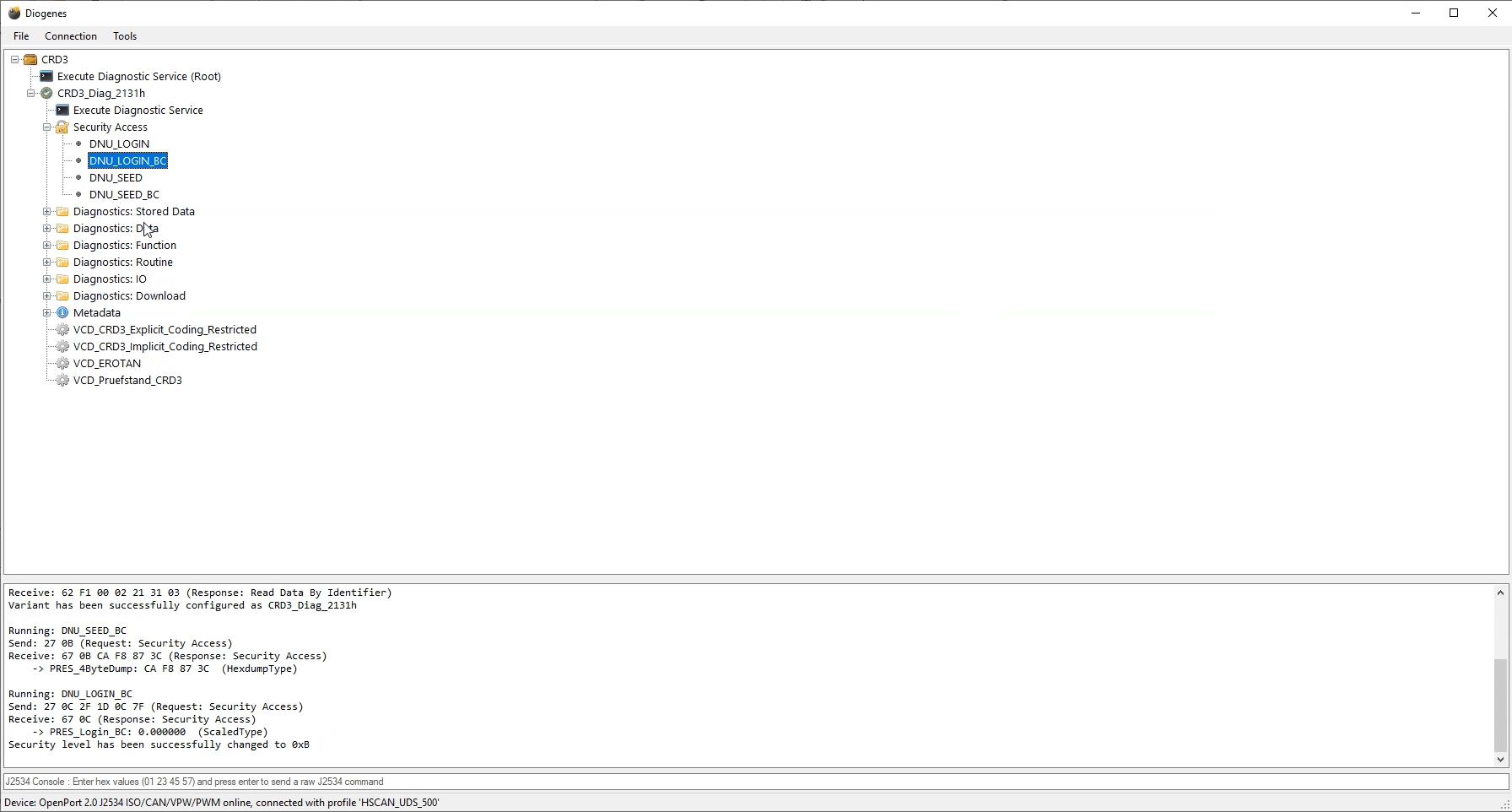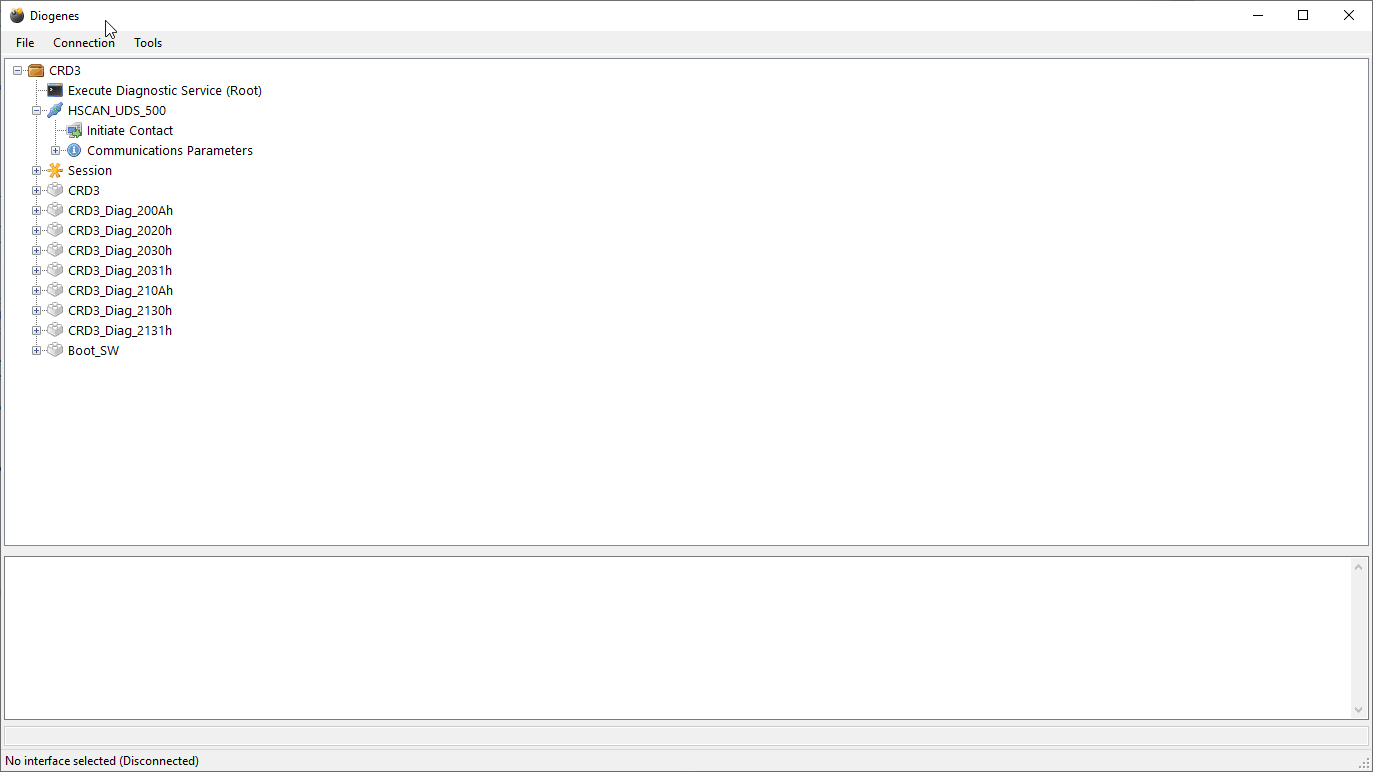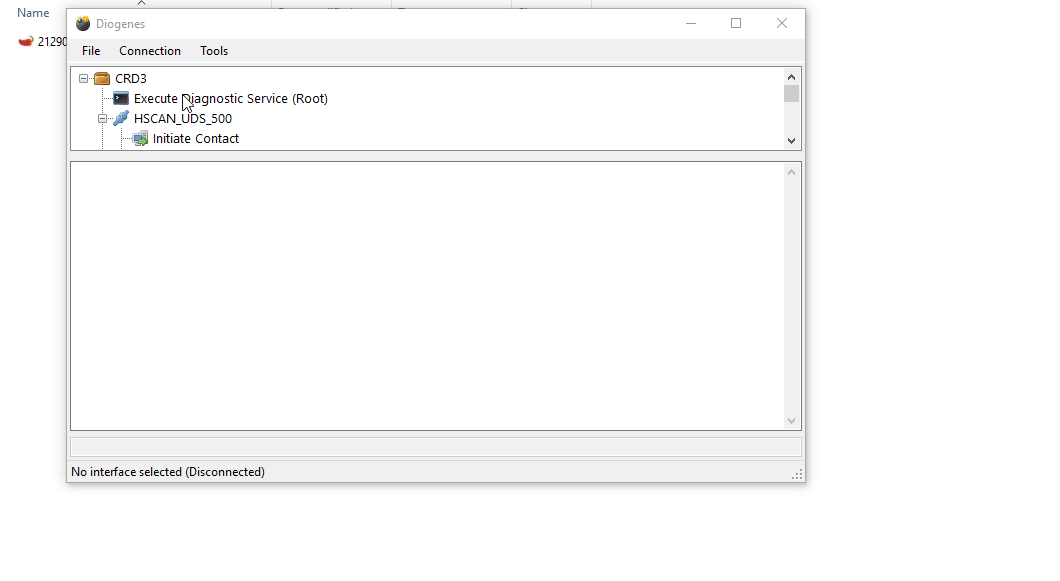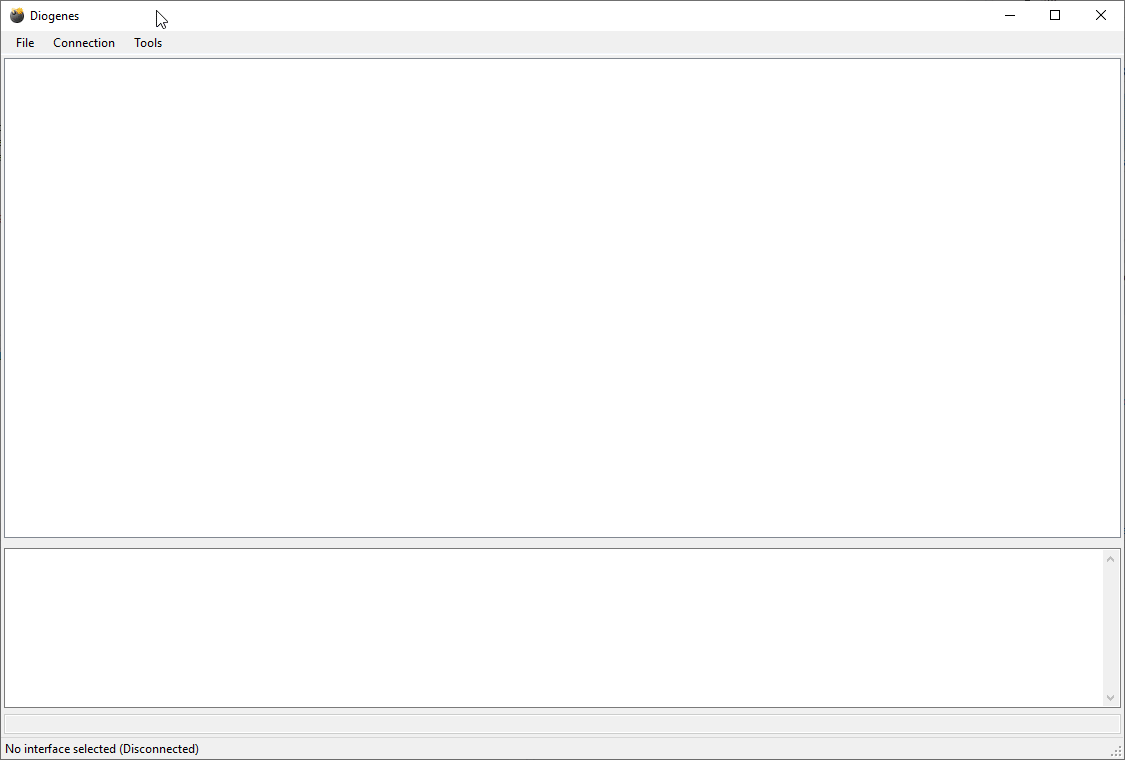Library and applications to work with Dаіmlеr diagnostics CBF files.
- Caesar : Library to operate on CBF files
- Diogenes: ECU-Coding utility
- Trafo: Transforms CBF files into JSON
- UnlockECU: (External) ECU-Unlocking utility
This project is far from production ready. Please be careful if you are planning to use this with your vehicle.
Builds are available on the Releases page for the adventurous. Ensure that .NET Framework 4.6 or newer is installed. Optionally install .NET 5 too, if you intend to use UnlockECU.
MIT
Icons from http://www.famfamfam.com/lab/icons/silk/
Caesar is an experimental parser for CBF files that is reverse engineered from the official, proprietary c32s.dll library.
Names of classes, functions, properties will change often as they are matched with their disassembly's names. Please be mindful of this when referencing the Caesar library.
Trafo converts a CBF file into a simplified JSON representation and is backed by Caesar. At this point, the JSON should contain enough information to work with variant-coding strings. Usage is straightforward: drop a CBF file onto Trafo.exe and a JSON file will be created in the same folder as the input file.
Diogenes is intended to be a FOSS replacement for Vediamo's variant-coding capabilities over J2534 interfaces.
At this point, Diogenes can:
- Load CBF files and display ECUs and their variants
- Parse a variant's VC domain
- Parse, visually modify and reinterpret a variant-coding string
- Generate authentication seed-keys from standalone DLLS (borrowed from my SecurityAccessQuery)
(New:)
- Open a UDS connection over J2534 (✅)
- Enumerate connected ECUs and identify online devices with compatible CBF files (✅ : UDS)
- Complete a seed-key challenge with a target ECU (✅ : Paired with UnlockECU)
- Write a new variant-coding string on a target ECU (✅* : Experimental, reuses fingerprints, still needs more testing)
Diogenes will be "complete" when it can:
- ❌: Test on an ECU that is installed in a vehicle. So far, tests have been made on a real ECU, but only on the bench.
If you are looking for an alternative with a broader feature set, check out OpenVehicleDiag instead
More information on variant coding in this discussion
Dump a CFF flash file's raw memory contents (assumes unencrypted, uncompressed data). Files are labeled with its intended memory address (IDA: File -> Load file -> Additional binary file)
Modify a CFF flash file's memory segment data (assumes unencrypted, uncompressed data). New segment data can be of different file sizes, and the destination ECU memory address can be changed.
The primary roadblock for Caesar/Diogenes is the inability to parse Diagnostic Service code blobs, which are compiled binary scripts that automate tasks such as session switching, variant identification, ECU unlocking, and (apparently) variant coding. While Diogenes is usable on UDS, it still falls short for protocols like KW2C3PE because of this issue.
- Session switching and variant identification on UDS devices is generally consistent and standardized.
- ECU unlocking can be deferred to UnlockECU.
- Variant coding typically contains 4 bytes for the signature of the last system that modified it. Diogenes will automatically clone this value.
- By default, the 4 bytes contain seemingly random data (
00 40 33 10) on a "fresh" ECU, and become00 00 00 01when written with Vediamo. - Some devices also include the SCN as part of the variant coding, which appears as an additional 128-bit/16-byte field.
- Diogenes will detect "unfilled" values, and prompt for the next course of action.
- By default, the 4 bytes contain seemingly random data (
There are concepts which I do not understand that may impede the development of this project:
- The SCN seems to be a specific 16-byte string, where the first 10 characters are the part number (as printed on the device), and an unknown 6 characters. Are these 6 characters unique to the device?
- The 16-character string is typically queried via
DT_STO_ID_Calibration_Identification. There is also a function forDT_STO_ID_Calibration_Verification_Numberwhich returns an unknown 4 bytes. Are these values matched? - Is there a way to query the ECU if the current SCN is valid and accepted? This is crucial to check if the variant-coding was successful.
These individuals have helped to improve Diogenes in some form (e.g. code, testing, traces/logs, knowledge sharing, assets).
- @N0cynym
- @Feezex
- @rnd-ash
Thank you for your contributions.

